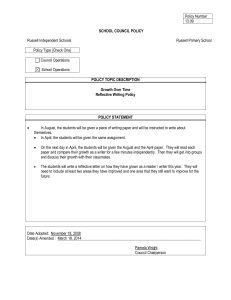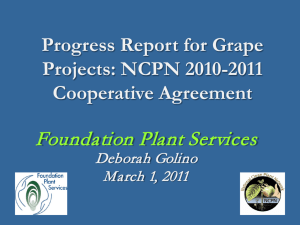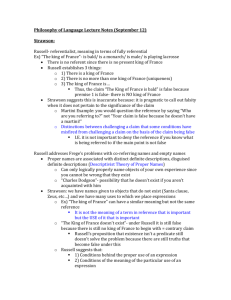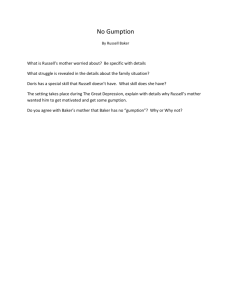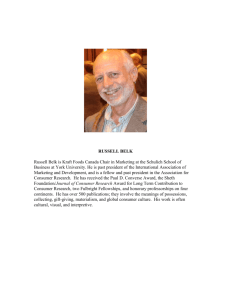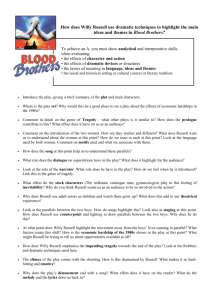Leoncini - Interfaith Philippines
advertisement
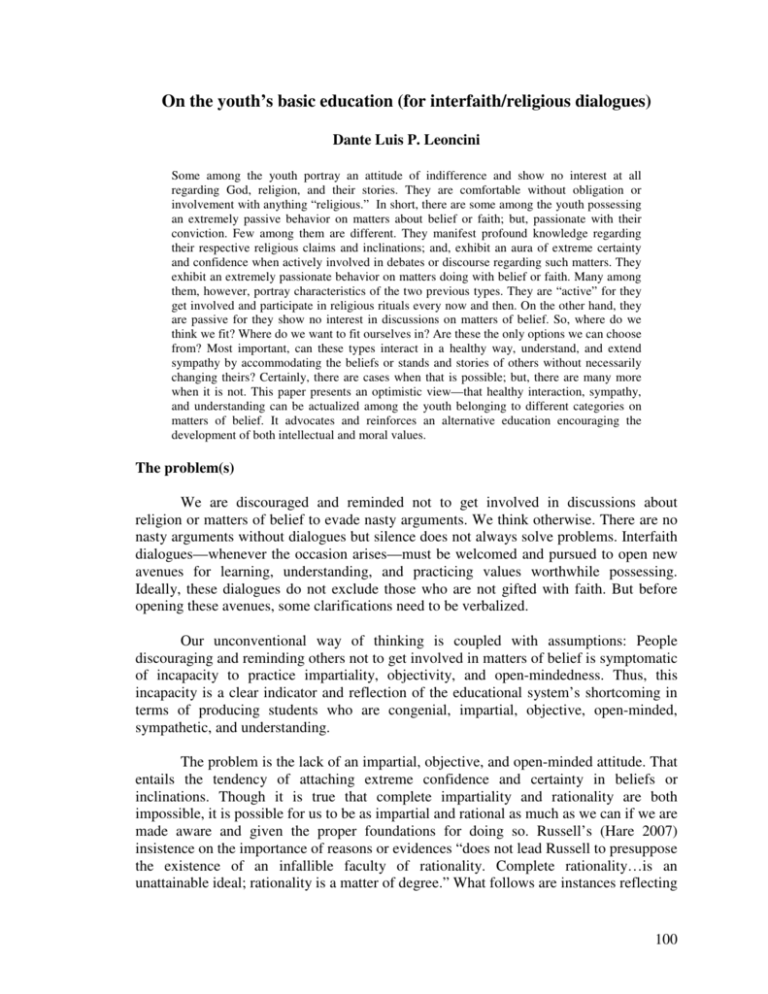
On the youth’s basic education (for interfaith/religious dialogues) Dante Luis P. Leoncini Some among the youth portray an attitude of indifference and show no interest at all regarding God, religion, and their stories. They are comfortable without obligation or involvement with anything “religious.” In short, there are some among the youth possessing an extremely passive behavior on matters about belief or faith; but, passionate with their conviction. Few among them are different. They manifest profound knowledge regarding their respective religious claims and inclinations; and, exhibit an aura of extreme certainty and confidence when actively involved in debates or discourse regarding such matters. They exhibit an extremely passionate behavior on matters doing with belief or faith. Many among them, however, portray characteristics of the two previous types. They are “active” for they get involved and participate in religious rituals every now and then. On the other hand, they are passive for they show no interest in discussions on matters of belief. So, where do we think we fit? Where do we want to fit ourselves in? Are these the only options we can choose from? Most important, can these types interact in a healthy way, understand, and extend sympathy by accommodating the beliefs or stands and stories of others without necessarily changing theirs? Certainly, there are cases when that is possible; but, there are many more when it is not. This paper presents an optimistic view—that healthy interaction, sympathy, and understanding can be actualized among the youth belonging to different categories on matters of belief. It advocates and reinforces an alternative education encouraging the development of both intellectual and moral values. The problem(s) We are discouraged and reminded not to get involved in discussions about religion or matters of belief to evade nasty arguments. We think otherwise. There are no nasty arguments without dialogues but silence does not always solve problems. Interfaith dialogues—whenever the occasion arises—must be welcomed and pursued to open new avenues for learning, understanding, and practicing values worthwhile possessing. Ideally, these dialogues do not exclude those who are not gifted with faith. But before opening these avenues, some clarifications need to be verbalized. Our unconventional way of thinking is coupled with assumptions: People discouraging and reminding others not to get involved in matters of belief is symptomatic of incapacity to practice impartiality, objectivity, and open-mindedness. Thus, this incapacity is a clear indicator and reflection of the educational system’s shortcoming in terms of producing students who are congenial, impartial, objective, open-minded, sympathetic, and understanding. The problem is the lack of an impartial, objective, and open-minded attitude. That entails the tendency of attaching extreme confidence and certainty in beliefs or inclinations. Though it is true that complete impartiality and rationality are both impossible, it is possible for us to be as impartial and rational as much as we can if we are made aware and given the proper foundations for doing so. Russell’s (Hare 2007) insistence on the importance of reasons or evidences “does not lead Russell to presuppose the existence of an infallible faculty of rationality. Complete rationality…is an unattainable ideal; rationality is a matter of degree.” What follows are instances reflecting 100 education’s shortcoming not only in the case of the youth but of adults too: Some, for example, insist on pursuing arguments despite knowing they are wrong. Others tune out, not to listen to or respect another’s opinion, but to figure a good counter argument to discredit the “defender of a distasteful perspective. Both examples betray what Zachary Seech (1993) calls the “win, don’t lose—whatever the cost attitude.” 1 As a result of this attitude, speakers take a combative stance in conversation—that is, discourse dominated by military metaphors.2 If the “conversants” are not aware of the appropriate ways of doing dialogue, then they fail to make themselves examples of how it should be to get involved with an issue. Moore and Parker (2002: 6) say, the term “issue” is used “to identify the focus of a debate, discussion, or dispute. In the broadest sense, an issue is any matter of controversy or uncertainty; it may be in dispute, in doubt, or simply ‘up for review.’” Issues are different from topics of conversations. An issue can be identified through the word “whether.” Most of us are either unaware or forget the real purpose of getting into an argument. An argument is “a piece of reasoning articulated in words or symbols” (Ceniza 1994:2). The purpose of an argument is to resolve an issue. In this sense it is a tool, along with others, such as, observation and consultation with reliable sources (Moore and Parker 2002: 10). Because it serves that purpose, one’s aim in getting into arguments is not to make one appear better than others but to help and learn from each other.3 Arguments are commonly—as we know them (since other arguments can be symbolized using statement forms)—made up of claims and claims consist of terms. A claim is “a proposition or statement that is either true or false but we do not necessarily have to know whether it is true or not Claims always have truth values—the truth value of a true claim is true and that of a false one is false [Cf. Moore and Parker (2002: 3) and Ceniza (1994: 65)]. Generally, we know how to reason out well and the conclusions we draw are correct. There are moments, however, when we cannot be rational at all! One reason for this is making up our minds prematurely—that is, committing ourselves emotionally to a conclusion or prejudging another. Commonly, we talk about these as bias (or, “bias for”) and prejudice (or, “prejudice against”), respectively. Biases are formed because of at least three reasons: forming an opinion too soon; forming an opinion that is contradicted by evidence; and, forming a well-reasoned opinion. The last reason shows that not all biases are unreasonable or considered wrong.4 Prejudices, on the other hand, are formed as a result of first impressions, premature judgments, and false suppositions. Both biases and prejudices also lead one to being defensive. Seech (1993: 7) says, “When someone says you have been defensive on an issue, we might think that you have been evasive and unwilling to talk about the issue at length. However, this is not the only way to show defensiveness. Actually, your frame of mind is a defensive one whenever you concentrate more on defending one view than on openly evaluating a new view. You may, in fact, appear to be quite on the offense, to the point of being offensive and overbearing.” 101 The presence of biases and prejudices create “logical points of vulnerability.” These are topics about which a person cannot be rational, cannot be objective, think clearly, consider evidence impartially, and draw a sensible, justified conclusion. It is worth reflecting and identifying one’s logical points of vulnerability so we will not appear as “unjustifiably self-righteous” and “prevent [us] from managing to believe that some nonsensical reasoning makes sense. Such arrogance and irrationality serve only to put a person in a foolish position.”5 Given these examples and observations, how can we make conditions better for interfaith dialogues and what can we do to make students better conversants for the sake of all dialogues? The solution The solution is an education giving unquestioned importance to critical thinking as a means to achieve the necessary attitudes and skills so that interfaith/religious dialogues shall be perceived as a pleasant activity everyone can look forward to. This entails a bold habit of continuously verbalizing to the youth (also, the youth formerly) about details for achieving the ideals and appropriate manners for “dialoguing.” That means, bringing these ideals and manners to their awareness or consciousness whenever we observe that these are not so. Although this educational framework is itself an ideal, there is no reason why it should not be conceived as a possibility that can be actualized ultimately. As it is said, “Dreams come for free!” The solution entails producing individuals of a certain type. Schools will have to find means and ways to address their shortcoming based on the problems observed. The goal of the educational system will have to be geared towards the development and production of individuals who are well-versed with certain habits or skills of thought and appropriate behavior. These students will serve as living examples to generations that are to follow and their elders as well. What follows are some recommendations that can be altered and refined as the development and production of these individuals proceed: Schools can develop the habit in today’s youth to learn and practice these critical thinking attitudes and skills so that congenial adults and pleasant relationships come easy in the future. Starting early is of great help. As Protagoras, the great sophist, says: “Teaching requires natural endowments and training; one should begin to learn when one is young.”6 For example, we can show young children abstract paintings and irregularshaped objects that they can view from different angles and allow them to talk about and appreciate their impressions for as long as they like. This exercise arouses their attention and curiosity so they can be good listeners. This encourages them to ask questions or enquire and speak their minds regarding the perceptions of others so they learn to make distinctions. Also, this develops their imaginative and creative powers that come handy in their adult life. This teaches them to be enterprising in searching for solutions and develop their talent to imagine and picture the consequences of their courses of action and decisions. Most importantly, while viewing these objects and paintings, they learn to appreciate what others see that they do not. So they enjoy discussing each others’ viewpoints and learn that their way of seeing is only one way among others. As a result, 102 they learn not to insist that what they see is the one correct way of seeing. Thus, they learn early that their wishes and desires do not characterize what the world is. As they mature, these lessons and exercises are intellectualized by giving them further lessons and readings on critical thinking and a lot of examples. Let us teach them about claims, issues, arguments, and rules of inference, among others. Let them listen to speeches to identify flaws in argumentation and ask them to reconstruct better arguments if it is possible and identify the fallacies committed. Let them watch television advertisements to identify the fallacies and inconsistencies of the presentation like women, for example, sporting nail polish and well-tailored signature two-piece swimsuits in a pre-historic setting! Let us ask them what they will do instead if they were to do the same. It is not very difficult to identify what strategy the educational system must adopt for the youth’s basic education given the problem and the solution suggested. Very clearly, the strategy is the inclusion of critical thinking as a required course for all students. Though it is true that training the youth to think critically is necessary for the possibility of pleasant interfaith dialogues, it is not necessarily limited to that end alone. The benefits of critical thinking extend from the level of individuals (i.e., congenial, impartial, objective, sympathetic, understanding, and open-minded) to that of society (i.e., peaceful co-existence, pleasant relationships, and a community in the true sense of the word). Its benefits apply to instances when individuals spend their time reflecting on their own to their respective relationships being cultivated and nurtured outside the home and classroom. On critical thinking So what is critical thinking? Common phrases attached to critical thinking in readings (e.g., Bertrand Russell, Moore and Parker, Zachary Seech, Peter Facione)— either explicitly or implicitly—are “the ability to think for oneself” and “the ability to listen well.” This ability compliments the former since listening well is one way for one to be well-informed; and, thinking for oneself requires being well-informed. Another one is “the ability to be reasonable.” This ability is coupled with familiar attitudes, such as, that of being impartial, objective, open-minded, understanding, and sympathetic. Strictly speaking, these abilities are not accurate definitions of critical thinking but these sure give us an idea of what critical thinking is all about. In fact, if we were so obsessed with categorizing then these abilities might as well be included under the heading “On the critical thinker!” This is likewise true when we take a look at Bertrand Russell’s7 view on “critical judgment.” Russell emphasizes the importance of judgment. He proceeds to associate “critical judgment” with abilities of weighing evidences and arguments, estimating truth, being critical about one’s attempt at criticism, and the awareness that refutations are not final but means to further refinements. Russell does not consider critical thinking as a negative enterprise but one that emphasizes on constructive doubt. The criticism it aims at is not one that seeks to reject but one that considers apparent knowledge based on its merits and retains whatever survives critical scrutiny. 103 Russell emphasizes critical scrutiny as necessary to determine the degree of confidence attached to beliefs or opinions. He points out that one of the most important—yet neglected—features of education is learning how to reach true conclusions on the basis of insufficient data. Another view about critical thinking that reinforces Russell’s earlier view is a relatively recent one from Moore and Parker (2002:4). This view is stated as: Critical thinking is the careful, deliberate determination of whether we should accept, reject, or suspend judgment about a claim—and of the degree of confidence with which we accept or reject it. The ability to think critically is vitally important; in fact, our lives depend on it. The way we conduct our lives depends on what we believe to be true—on what claims we accept. The more carefully we evaluate a claim and the more fully we separate issues that are relevant to it from those that are not, the more critical is our thinking…When we are confronted with a claim, usually we already have a certain amount of information relevant to the topic, and we can generally figure out where to find more if we need it. Having both the desire and ability to bring such information to bear on our decisions is part of the critical thinking process. Critical thinking involves a lot of skills, including the abilities to listen and read carefully, to evaluate arguments, to look for and find hidden assumptions, and to trace the consequences of a claim. If you are beginning to sense that there is no simple way of deciding when to accept a claim, you are on the right track. We could say, of course, that we should accept a claim only when we have good reason for doing so. The importance of critical thinking and the critical thinker What is true of the close relation between notions of critical thinking and the critical thinker is likewise true in the case of critical thinking’s importance and the critical thinker. Notions on the importance of critical thinking necessarily translate to notions about the critical thinker or the youth hoped for the future. That means, whatever is said about critical thinking’s importance applies to the critical thinker when restated. Thus, combining these matters under one section serves our convenience. Very few writers have noticed the impact and importance of Russell’s views8 on critical thinking relating to certain issues. Hare (2007) informs us that Russell’s humanistic conception of education is one that views the student as an independent person whose development is threatened by indoctrination, concerned with protecting the child’s freedom to exercise individual judgment on intellectual and moral questions, and claims that schooling all too often encourages the herd mentality, with its fanaticism and bigotry, failing to develop what Russell calls a “critical habit of mind.”9 Hare states good reasons why critical thinking is necessary today. These are: (1) The threat of indoctrination; (2) The importance of individual judgment; and, (3) The 104 prevalence of fanatical opinions. Given those, Russell’s views on critical thinking help everyone understand why this thinking type is important for the youth’s education. Russell, in fact, insinuates that critical thinking is close to what we know of as virtue— literally, “excellence.” Russell conceives critical thinking as a virtue encompassing both intellectual and moral aspects. More important—for our purpose—is his view that this virtue (critical thinking) can be taught. Russell speaks of virtue in terms of education’s purpose—that is, to prepare the youth to form reasonable judgments on controversial issues they are likely to consider in the future. In other words, the educational system should have foresight or be able “to see what is not yet” for the sake of improving the state of affairs of a world characterized by diversity. Hare (2007) explains: Russell’s conception of critical thinking involves reference to a wide range of skills, dispositions and attitudes which together characterize a virtue which has both intellectual and moral aspects, and which serves to prevent the emergence of numerous vices, including dogmatism and prejudice. Believing that one central purpose of education is to prepare students to be able to form “a reasonable judgment on controversial questions in regard to which they are likely to have to act.” Russell maintains that in addition to having “access to impartial supplies of knowledge,” education needs to offer “training in judicial habits of thought.” Beyond access to such knowledge, students need to develop certain skills if the knowledge acquired is not to produce individuals who passively accept the teacher’s wisdom or the creed which is dominant in their own society. Sometimes, Russell simply uses the notion of intelligence, by contrast with information alone, to indicate the whole set of critical abilities he has in mind. In “Critical Thinking: What it is and why it counts” Peter Facione (1998) mentions six of these mental skills he calls the “core critical thinking skills.” These are: analysis, interpretation, evaluation, inference, explanation, and self-regulation. In the case of Russell, Hare (2007) states what critical skills include or refer to: “Such critical skills, grounded in knowledge, include the ability to form an opinion for oneself,10 the ability to find an impartial solution,11 and the ability to identify and question assumptions.12 The development of these abilities or skills calls for one’s disposition, meaning, these skills need to be practiced. Practicing these result to their conversion into actual behavior. This is no different from the point that Moore and Parker make. They (2002: 1-2) say: One of the advantages of living in a free society is the opportunity to think for oneself. But having the opportunity to do is one thing, and having the ability to do is quite another. Thinking—especially clear, reasoned thinking—is not easy work, and it doesn’t always come naturally…[By constantly trying to think critically we] develop some of the skills required to form intelligent opinions, make good decisions, and determine the best 105 courses of action—as well as recognize when someone else’s reasoning is faulty or manipulative. Russell foresees the point that clear reasoned thinking is not easy and does not come naturally, so he includes education in the picture as the means of instruction that aids in the formation of these skills that will eventually become mental habits. The mental habits Russell (Hare 2007) mentions are stated in the following manner: The mere possession of critical skills is insufficient to make one a critical thinker. Russell calls attention to various dispositions which mean that the relevant skills are actually exercised. Typically, he uses the notion of habit (sometimes the notion of practice) to suggest the translation of skills into actual behavior. Russell describes education as the formation, by means of instruction, of certain mental habits [and a certain outlook on life and the world]. He mentions in particular the habit of impartial inquiry, which is necessary if one-sided opinions are not to be taken at face value, and if people are to arrive at conclusions which do not depend solely on the time and place of their education; the habit of weighing evidence, coupled with the practice of not giving full assent to propositions which there is no reason to believe true; the habit of attempting to see things truly, which contrasts with the practice of merely collecting whatever reinforces existing prejudice; and the habit of living from one’s own centre which Russell describes as a kind of self-direction, a certain independence in the will. Such habits, of course, have to be exercised intelligently. Russell recognizes clearly, indeed it is a large part of the problem which critical thinking must address, that one becomes a victim of habit if the habitual beliefs of one’s own age constitute a prison of prejudice. Hence the need for a critical habit of mind. Russell’s view complements another one from Protagoras that states, “skill [is] nothing without practice, and practice nothing without skill.” 13Mental habits are developed by consistently exercising the corresponding skills. It is actually difficult to make distinctions between mental and intellectual habits if we were to depend on the way they are called. If we, however, examine the concepts attached to them, respectively, we notice that mental habits are close to the notions of abilities and skills. The difference between habits and abilities or skills is the fact that one’s capability or talent for doing precedes the ease of doing consistently. The habit of impartial inquiry, for example, is preceded by the ability or skill to make an impartial inquiry. Mental habits are not the same as intellectual habits but are related. Intellectual habits suggest flexibility and truthfulness. Intellectual habits are closer to our concept of attitude or character. It takes character or willingness, for example, to be ready to act or react in a particular way; and, acting or reacting presupposes the awareness that the habits in question are appropriate coupled with a commitment to their realization. Russell (Hare 2007) says: 106 Because they are not simply automatic responses in which one has been drilled, such intellectual habits in effect reflect a person’s willingness, what Russell typically calls one’s readiness, to act and respond in various ways. His examples include: a readiness to admit new evidence against previous beliefs, which involves an open-minded acceptance (avoiding credulity) of whatever a critical examination has revealed; a readiness to discard hypotheses which have proved inadequate, where the test is whether or not one is prepared in fact to abandon beliefs which once seemed promising; and a readiness to adapt oneself to the facts of the world, which Russell distinguishes from merely going along with whatever happens to be in the ascendant, which might be evil. To be ready to act, or react, in these ways suggests both an awareness that the habits in question are appropriate and a principled commitment to their exercise. They have in common the virtue Russell called truthfulness, which entails the wish to find out, and trying to be right in matters of belief. What about “critical attitudes,” what are they? The problem we encounter is different authors have their own way of expressing their thoughts. What is important is we remember that whatever category all these habits and attitudes belong to, all these will ultimately refer to the characteristics and qualities that make one a critical thinker! Peter Facione14 (1998) enumerates seven of what he considers and calls “critical attitudes.” These are: being inquisitive, systematic, analytical, open-minded, judicious, truthseeking, and confident in reasoning. Critical attitude, for Russell on the other hand, refers to the outlook of a critical person. The critical attitude, for Russell, implies realizations that a critical thinker has come to terms with. Attitude, as the terms suggests, is reflected in a person’s behavior. He includes among the attitudes he mentions an outlook that is midway between skepticism and dogmatism. He calls that “critical undogmatic receptiveness.” Hare (2007) says, In Russell’s conception, beyond the skills and dispositions outlined above, a certain set of attitudes characterizes the outlook of a critical person. By the critical attitude, Russell means a temper of mind central to which is a certain stance with respect to knowledge and opinion which involves: a realization of human fallibility, a sense of the uncertainty of many things commonly regarded as indubitable, bringing with it humility; an openminded outlook with respect to our beliefs, an “inward readiness” to give weight to the other side, where every question is regarded as open and where it is recognized that what passes for knowledge is sure to require correction; a refusal to think that our own desires and wishes provide a key to understanding the world, recognizing that what we should like has no bearing whatever on what is; being tentative, without warranted by the evidence. Russell defends an outlook midway between complete skepticism and complete dogmatism in which one has a strong desire to know combined with great caution in believing that one knows. Hence his notion of critical undogmatic receptiveness which rejects certainty (the 107 demand for which Russell calls an intellectual vice and ensures that openmindedness does not become mindless. Hare adds too that the critical outlook, for Russell, reflects an epistemological and ethical perspective which emphasizes: how beliefs are held (i.e. not dogmatically); the doubtfulness of all beliefs; the belief that knowledge is difficult but not impossible; freedom of opinion; truthfulness; and tolerance. Conclusion The critical thinker is, therefore, the product of the educational system that we envision. Aside from everything written and said, the critical thinker is one who has one’s own mind and is reasonable. S/he is not easily swayed by the opinions and persuasions of others but very well understands, sympathizes if necessary, what others exactly want to say. S/he is ready to welcome and respects the views of others even if these do not conform one’s own. A good example is the case of the mother who cannot or refuses to accept that her child committed a crime. The critical thinker, in this case, needs to be considerate and sympathetic to the mother and understands why she holds such a view without necessarily agreeing with her. This is close to Russell’s concept of “hypothetical sympathy” or the capability of “knowing” or “feeling” how it is to think the way “the other” does. This is close to our concept of empathy. We observe, however, that the “the ability to make distinctions” is never mentioned as an important characteristic of a critical thinker. Making distinctions is one important feature necessary for identifying and figuring out differences. Identifying and figuring out differences, such as, appropriate from inappropriate, dangerous from safe, fallacious from flawless, etc., complement the capability of being reasonable. This ability or skill to make distinctions helps one determine the realm of discourse that one is involved in. Is it in the realm of facts (or that of the “I know”); matters of fact a.k.a. opinions and judgments (or that of the “I think”); or matters of pure opinion a.k.a. beliefs (or that of the “I believe”)? It is interesting to note that without this ability to make distinctions, one will not be able to determine the particular realm of the discourse that one is involved in. If we speak of facts, then those are verifiable. If we speak of matters of fact, then these can be contentious but there are standards and tools to settle those. This is the realm of issues. If we speak of matters of pure opinion, then we are in the realm of belief and we are telling stories that have to be taken with a few grains of salt. Related to what we just pointed out are some proclamations made 2,500 years ago or so. Heraclitus says, “The things I rate highly are those which are accessible to sight, hearing, apprehension.”15 He also exhibits the optimism we hold when he says, “Everyone has the potential for self-knowledge and sound thinking.”16 Empedocles, on the other hand, says, “a judicious use of the senses combined with a proper use of intelligence can teach one the truth about the world.”17 Lastly, critical thinkers make their mission contagious so that others may learn about open-mindedness. They do this by making themselves examples of people who are open-minded, they use language fairly— language without emotional charge, they do not take arguments in a personal way.18 108 So, is it not possible at all to appreciate each other’s stories without getting belligerent if these stories do not fit well with each other? The youth—the critical thinkers—of tomorrow all say: “Yes, that is possible.” Yes, we can do that! END NOTES: 1 From the Preface of Zachary Seech, Open minds and everyday reasoning (California: Wadsworth, 1993) p. vii. “Certainly you know what it’s like to argue for a view long past the point where you know you’re wrong. You must also know what it’s like to tune out while someone is talking, as you grope for a counter argument that will devastate this defender of a distasteful perspective. These things happen when we become more interested in winning an argument than in learning something from the other person.” 2 Seech (1993: 4) says, “Winning and losing, victory and defeat, are concepts that we use in reference to personal quests for achievement, in sports, and in military operations. The military metaphors are the ones that dominate the way we talk about dispute on hot issues. We hear talk of attacking another’s position, with the hope that the other person will have to retreat from that position…We even hear people say they need to combat a certain dangerous view. People say they are going to aim at the view that an opponent has presented… 3 See Moore and Parker, Critical thinking (Philippines: McGraw-Hill, 2002) p. 2. They state: It is important at the outset that thinking critically is not about attacking people. [We are] expected to critique others’ ideas and they will be asked to critique [ours]. Doing this, however, doesn’t mean putting people down. Every single one of us makes mistakes, and it can be quite useful to have others help us see them. We appreciate it when someone points out that we have a low tire or we aren’t gripping the golf club properly. Likewise, we can appreciate it if someone points out that our position, theory, or idea is incomplete or unclear, insufficiently supported, or in some other way unconvincing. And when we’re on the other side, we can help others see the holes in their arguments. We don’t do our friends a favor by pretending their ideas are wise or profound when they are actually half-baked. So critical thinking is more about helping others than attacking them, and to the extent we are able to think critically about our own ideas, it is about helping ourselves. Our goal, remember, is knowledge and understanding, not ‘winning’ or ‘coming out on top’. 4 Seech (1993: 5-7). 5 This long passage is written taken from Seech (1993: 2-3). Generally speaking, we are quite good at our task. We are good thinkers and the conclusions we draw are correct…At times, however, we don’t reason as well as we should. This is often because we’ve already made up our minds. When we start with an emotional commitment to one conclusion, or a prejudice against another conclusion, the chances are good that we will have a hard time being reasonably objective and thinking clearly. [There] are topics about which [a] person, we say, just cannot be rational… This person has great difficulty in being objective on these topics. He or she finds it difficult…to consider the evidence impartially and draw a sensible, justified conclusion. These topics are the points of logical vulnerability for that person. Points of logical vulnerability vary from one person to another. …A psychological commitment to a certain belief or against another [one] keeps the person from weighing fairly the evidence for each side of the question… What are your points of logical vulnerability: It is worthwhile to reflect in order to identify them. An awareness of your points of logical vulnerability can prevent you from becoming unjustifiably self-righteous and can further prevent you from managing to believe that some quite nonsensical reasoning makes sense. Such arrogance and irrationality serve only to put a person in a foolish position. Often, when you desperately want a particular belief to be true, then almost any reasoning offered in support of that conclusion looks like good reasoning, and when you desperately want a particular belief to be false, then the reasoning that appears perfect for your neighbor may 109 seem obviously inadequate for you. Ironically, the very same kind of reasoning may appear good to you in one context and bad in another. If you are aware of your points of logical vulnerability, you will be more likely to notice when you are inclined to shortchange yourself logically. 6 Robin Waterfield, The first philosophers (The Presocratics and the sophists) (Oxford: Oxford University Press, 2000), p. 219. 7 Cf. William Hare’s “Bertrand Russell on Critical Thinking” in http://www.criticalthinking.org/articles/bertrand-russell.cfm. Hare (2007) states: There are numerous insights in Russell’s account which should have a familiar ring to those acquainted with the recent critical thinking literature. First, Russell’s language, especially his emphasis on judgment, suggests the point that critical skills cannot be reduced to a mere formula to be routinely applied. Critical judgment means that one has to weigh evidence and arguments, approximate truth must be estimated, with the result that skill demands wisdom. Second, critical thinking requires being critical about our own attempts at criticism. Russell observes, for example, that refutations are rarely final; they are usually a prelude to further refinements. He also notes, anticipating a recent objection that critical thinking texts restrict criticism to “approved” topics, that punishment awaits those who wander into unconventional fields of criticism. For Russell, critical thinking must include critical reflection on what passes for critical thinking. Third, critical thinking is not essentially a negative enterprise, witness Russell’s emphasis on constructive doubt, and his warning against practices which lead to children becoming destructively critical. Russell maintains that the kind of criticism aimed at is not that which seeks to reject, but that which considers apparent knowledge on its merits, retaining whatever survives critical scrutiny. There is pervasive emphasis in Russell’s writings…on the reasons and evidence which support or undermine a particular belief. Critical scrutiny of these is needed to determine the degree of confidence we should place in our beliefs. He emphasizes the need to teach the skill of marshalling evidence if a critical habit of mind is to be fostered, and suggests that one of the most important, yet neglected, aspects of education is learning how to reach true conclusions on insufficient data. This emphasis on reasons, however, does not lead Russell to presuppose the existence of an infallible faculty of rationality. Complete rationality, he observes, is an unattainable ideal; rationality is a matter of degree. 8 This is one important reason why Hare’s (2007) work on Russell is worth sharing for this paper’s purpose. He says: The ideal of critical thinking is a central one in Russell’s philosophy, though this is not yet generally recognized. Russell’s name seldom appears in the immense literature on critical thinking which has emerged in philosophy of education over the past twenty years. Few commentators have noticed the importance of Russell’s work in connection with any theory of education which includes a critical component. 9 Hare cites Chander, Woodhouse, and Stander as examples of the few who recognize Russell’s contributions to a philosophy of education that includes critical thinking as an important component. 10 Hare (2007) says, this “involves…being able to recognize what is intended to mislead, being capable of listening to eloquence without being carried away, and becoming adept at asking and determining if there is any reason to think that our beliefs are true.” 11 Hare (2007) says, this “involves learning to recognize and control our own biases, coming to view our own beliefs with the same detachment with which we view the beliefs of others, judging issues on their merits, trying to ascertain the relevant facts, and the power of weighing arguments.” 12 Hare (2007) says, this “involves learning not to be credulous, applying what Russell calls constructive doubt in order to test unexamined beliefs, and resisting the notion that some authority, a great philosopher perhaps, has captured the whole truth.” 13 Robin Waterfield, The first philosophers (The Presocratics and the sophists) (Oxford: Oxford University Press, 2000), p. 219 14 Peter A. Facione, “Critical Thinking: What it is and Why it Counts” (online article, 1998 update) 15 Robin Waterfield, The first philosophers (The Presocratics and the sophists) (Oxford: Oxford University Press, 2000), p. 40. 16 Ibid. 17 Ibid., p.134. 110 18 Seech (1993: 12-20). 111

